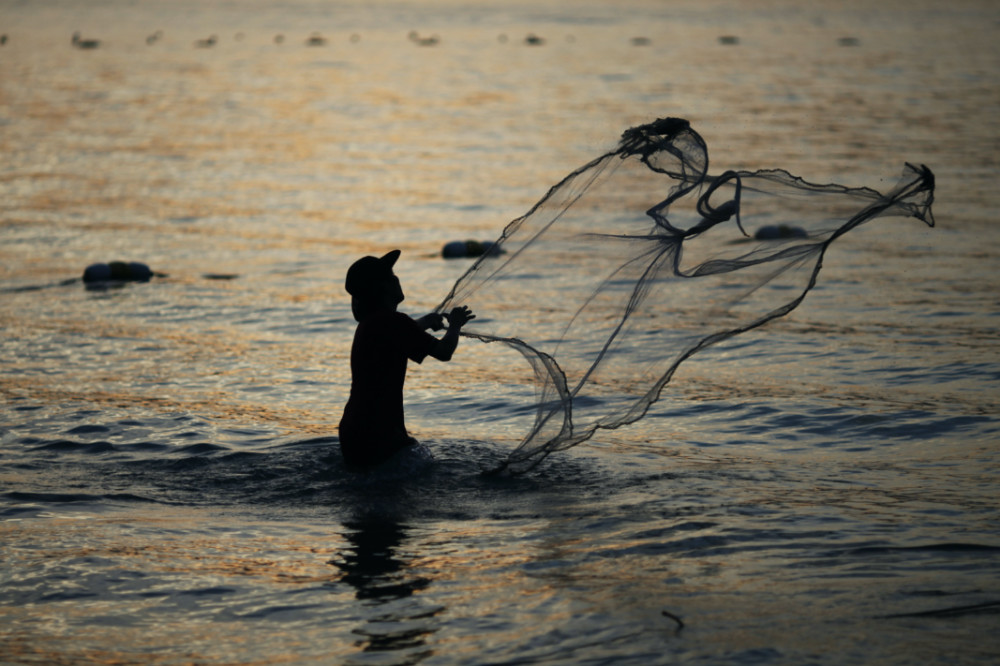Bangkok, Thailand
Thomson Reuters Foundation
Thailand stepped up efforts to tackle modern slavery on Monday, with a dozen industry associations signing pacts to rid their supply chains of child and forced labour as part of a government drive to get several key exports taken off a US blacklist.
The businesses pledged to publicise their policies on forced and child labour, set up complaint mechanisms and undergo audits, though some anti-trafficking experts cautioned that the voluntary nature of the accords could limit their effectiveness.

A Thai fisherman casts his net at Patong beach in Phuket, one of Asia’s premier resort islands on 10th December, 2009. PICTURE: Reuters/Damir Sagolj/File photo.
Labour Minister Suchart Chomklin said he hoped the initiative would boost Thailand’s image abroad as it seeks to earn a top tier rank in this year’s US Trafficking in Persons report.
“Sometimes business operators do not intend to use child labour, but children follow their parents [to work] and photos are taken, for instance, of children picking up shrimps and are seen as using child labour,” Suchart said.
Shrimp – along with fish, sugarcane and garments – are included on the US list of Thai goods that are suspected of being produced using child or forced labour.
The South-East Asian nation has pointed to improved efforts to stop trafficking in recent years, under scrutiny from Washington and following criticism of its failure to tackle abuses in the seafood and textile sectors, as well as the sex trade.
In its latest report in 2019, the United States said Thailand had made a moderate advance in eliminating the worst forms of child labour, but found children were still working in the garment, agricultural and seafood-processing sectors.
About 177,000 children aged five to 17 work as labourers in Thailand – three-quarters in hazardous jobs, a 2018 survey by the government and the United Nations showed.
Some anti-trafficking specialists said they doubted the memorandum of understandings signed by businesses and the Department of Labour Protection and Welfare would lead to significant change because they were non-binding.
“The government should come up with a modern slavery law like in Australia, where businesses must produce a modern slavery statement,” said Papop Siamhan, a lawyer with expertise in human trafficking and director at the Human Rights and Development Foundation.
But Somsak Paneetatyasai, president of the Thai Shrimp Association, said shrimp farmers have been more careful about labour practices since the seafood industry came under fire for its work practices about five years ago.
“There’s no need to force [business operators], since everyone is already aware of this issue,” he told the Thomson Reuters Foundation.






